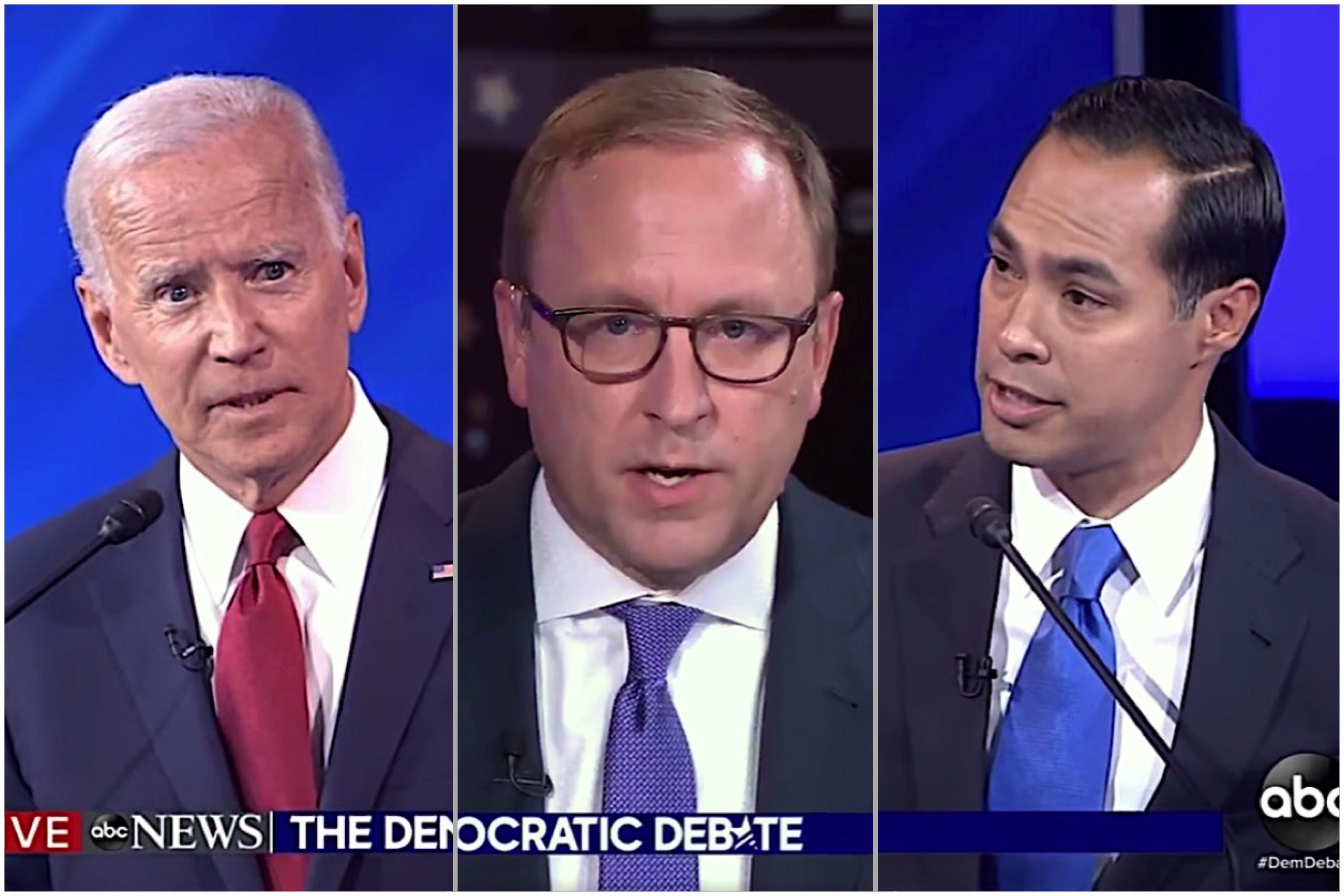ABC's Jon Karl says Julián Castro was 'just flatly wrong' in his attack on Joe Biden's memory


A free daily email with the biggest news stories of the day – and the best features from TheWeek.com
You are now subscribed
Your newsletter sign-up was successful
In his big health care exchange with former Vice President Joe Biden during Thursday night's Democratic presidential debate, Julián Castro cited the fact-checkers to make his case that Biden's plan would leave millions of Americans uninsured. But when Biden said Castro was wrong that, under his plan, you would have to "buy in" to Medicare, Castro suggested Biden was losing his memory.
As they say, live by the fact-check, die by the fact-check.
From reading the transcript, "it looks to be like Julian Castro was just flatly wrong," ABC News' Jon Karl said in his post-debate truth-squadding. "It seemed to me that Biden was right and that Castro mischaracterized what he said."
The Week
Escape your echo chamber. Get the facts behind the news, plus analysis from multiple perspectives.

Sign up for The Week's Free Newsletters
From our morning news briefing to a weekly Good News Newsletter, get the best of The Week delivered directly to your inbox.
From our morning news briefing to a weekly Good News Newsletter, get the best of The Week delivered directly to your inbox.
Castro did have a point, however — Biden did say the words "buy in," ABC News notes. But it was an "automatic" buy-in, whatever that means. Biden said: "The option I'm proposing is Medicare for all, Medicare for choice. If you want Medicare, if you lose the job from your insurance company, from your employer, you automatically can buy into this." Afterward, though, he said, "Anyone who can't afford it gets automatically enrolled in the Medicare-type option we have." You can watch the full exchange below. Peter Weber

A free daily email with the biggest news stories of the day – and the best features from TheWeek.com
Peter has worked as a news and culture writer and editor at The Week since the site's launch in 2008. He covers politics, world affairs, religion and cultural currents. His journalism career began as a copy editor at a financial newswire and has included editorial positions at The New York Times Magazine, Facts on File, and Oregon State University.
